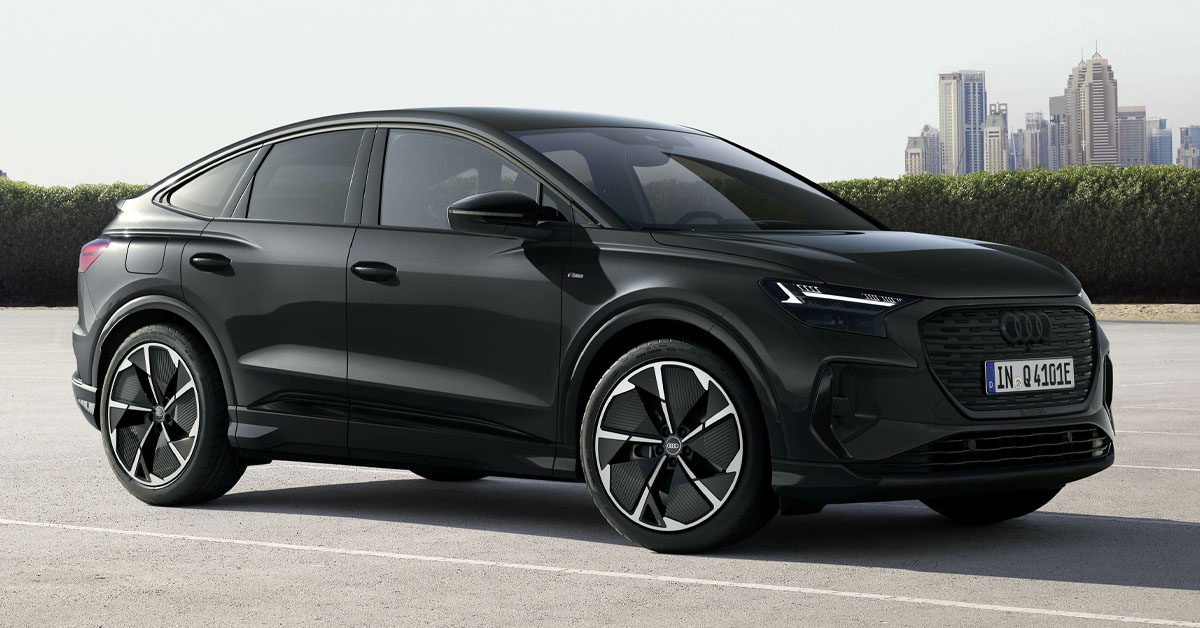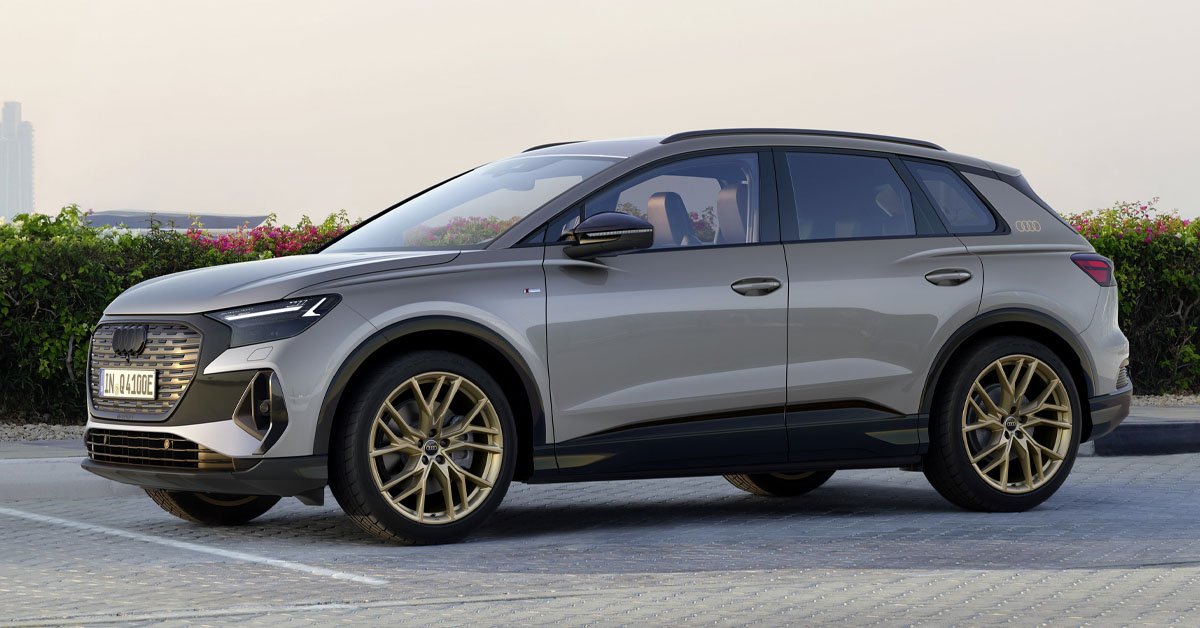Are Modern Vehicles Getting A Bit Too Heavy?

It's no secret cars are bigger than ever thanks to the increase in sales of SUVs and more Electric Vehicles (EVs) on the road. But are they getting too heavy for our already battered roads?
I recently read a review on the new Audi SQ8 e-tron EV and it's a big car, to say the least. And by big, we mean BIG. Around 6,350 lbs big. That's nearly 3 tonnes and a lot of mass for a car. It's not slow either. With a 0 to 60 mph sprint of just 4.5 seconds, it has a lot of kinetic energy and would cause some serious damage if it crashed into something (or someone).
This has had me thinking, are cars getting a bit too heavy for our battered and broken British roads? It's no secret that the roads are the worst they've ever been and it's also no secret our cars have more technology packed in them than ever before, which increases weight.
And don't even get me started on EV weight. Those batteries weigh a serious amount and the more range you want in your EV, the bigger and heavier the battery and subsequently the car has to be. Solid state battery tech is on the horizon that will reduce weight but it isn't quite there yet.
Another car that has recently come out is the Kia EV9 premium SUV, weighing in at around 5780 lbs or around 2.6 tonnes. Another big heavy beast that would surely sell well thanks to its ongoing hype.
Our roads are heavily affected by the variable weather and the amount of cars on the road. We already know about the freeze-thaw cycle creating potholes. But heavy vehicles only add to the problem. There is a reason you find all the biggest potholes on the leftmost lane on the motorway. Hint: it's the lane all the lorries use.
Modern UK roads aren't particularly suited to dealing with the size and weight of new cars, outside of motorways at least. Don't even get me started on the size of parking bays in the UK, which seem wholly inappropriate for the size of vehicles today.
Have you ever tried to visit a secluded spot that follows a narrow country lane? During the Covid-19 pandemic, lots of drivers were travelling to off-the-beaten-path places to go for walks. I remember driving to Scafell Pike and the narrow country lanes along the way were absolutely jam-packed with stuck SUVs trying to pass each other.
As cars evolve to meet higher safety standards and performance demands, they're becoming heavier, raising a crucial question: Are we sacrificing efficiency for safety?
Are Modern Vehicles Getting A Bit Too Heavy?
In the pursuit of safety and performance, today's cars seem to be leaning toward excessive weight. Unfortunately, this potentially poses challenges for both road safety and environmental impact.
Heavier cars affect everything from danger to pedestrians and other road users, to fuel and range efficiency and damaging the roads we drive on. But they also enhance the safety of the driver, as bigger vehicles have better crumple zones for protecting the user during a crash.
Supporting arguments
Safety vs. Weight
There's a notable trade-off between vehicle weight and safety. While heavier cars offer better protection in crashes involving similar-sized vehicles, they can pose greater risks to pedestrians, occupants of smaller vehicles and the roads themselves.
Heavy and higher vehicles have what's been called the "illusion of safety". You can see what is happening on the road better and you feel more protected due to the size. Website iihs.org says a bigger and heavier vehicle provides better crash protection than a smaller lighter one.
Environmental Impact
The weight of modern cars has a direct impact on fuel efficiency and emissions. This translates to increased energy consumption and a larger carbon footprint, which is at odds with the pressing need for more sustainable transportation solutions.
Heavy ICE (internal combustion engine) vehicles like SUVs will have poor fuel efficiency, which is why they are becoming hybrid-powered with mild battery technology. Many Mercedes SUVs like the AMG GLC 43 and 63 have transitioned from big 4-litre V8s to hybridised inline four 2-litre engines that increase efficiency and decrease emissions. This is happening across the entire industry.
Heavy EVs suffer from reduced range, which means the battery sizes have to be increased to combat the extra weight. It's a lose-lose situation when it comes to building an EV SUV with a fantastic range, unfortunately. But solid-state battery tech seems to be around the corner which may fix this particular issue.
Technological Advancements
While weight has increased due to factors like electric vehicle batteries, technological advancements aim to offset this. Materials like carbon fibre and aluminium are being employed to maintain safety without exacerbating the weight issue.
As a driver, navigating these heavier vehicles has highlighted both the perceived safety benefits and the nagging concern about their environmental impact. Feeling cocooned in a heavy vehicle instils a sense of safety, yet the guilt of contributing to environmental degradation persists.

Addressing Counterarguments
Need for Heavier Components in Electric Vehicles
There's a prevailing argument that the weight in electric vehicles is inevitable due to the necessity of bulky battery packs for extended range and performance. While this holds truth to some extent, it's crucial to explore ways to mitigate the impact of this weight.
Advancements in battery technology, such as higher energy density and more efficient battery management systems, could reduce the overall weight penalty without compromising performance.
Safety as a Priority
Advocates for heavier vehicles often cite safety as a paramount concern, highlighting that the added weight contributes to better crash protection. While this is valid within certain contexts, it's essential to recognise that vehicle safety can be achieved through a combination of factors beyond weight alone.
Advancements in structural design, deployment of advanced driver-assistance systems (ADAS), and innovations in materials can enhance safety without necessitating excessive weight.
Impact on Vehicle Performance
Some argue that heavier vehicles tend to offer better stability and handling, especially at higher speeds. While this might hold true to an extent, advancements in chassis design, suspension systems, and tire technology can compensate for weight differences without compromising performance.
Moreover, the emphasis should be on optimising vehicle dynamics while ensuring a balanced approach to weight distribution for improved agility.
Consumer Perception
Consumers often associate a heavier vehicle with sturdiness and durability, influencing their purchase decisions. Addressing this perception involves educating consumers about the nuanced relationship between weight, safety, efficiency, and environmental impact. Highlighting the strides made in lightweight materials and safety technology can redefine perceptions without compromising on safety standards.
Modern vehicle weight, what can we take away from the data?
The evolution of modern cars has undoubtedly introduced substantial advancements in safety, performance, and technology. However, the burgeoning weight of these vehicles raises pertinent concerns that demand careful consideration.
The trade-off between safety and efficiency, epitomised by the increasing weight of cars, prompts a critical question!
Are we reaching a tipping point where the pursuit of safety compromises other crucial aspects of vehicular design?
Safety has been a paramount consideration, and rightly so. Heavier cars often boast superior protection in certain collision scenarios, reassuring occupants within their cocoon of metal and technology. Yet, this safety advantage comes at a cost, one that extends beyond fuel efficiency and environmental impact.
The environmental repercussions of heavier vehicles cannot be overstated. With mounting concerns about climate change and sustainability, the increased energy consumption and emissions resulting from heavier cars present a conflicting reality.
As society steers toward cleaner and greener transportation, the weight challenge becomes a focal point demanding immediate attention.
Advancements in technology offer a glimmer of hope.
Innovations in materials science, propulsion systems, and vehicle design are striving to strike a delicate balance between safety, efficiency, and environmental responsibility.
From the integration of lightweight yet robust materials like carbon fibre to the revolutionising potential of advanced battery technologies, there's promise for a future where safety doesn't equate to excessive weight.
Addressing the counterarguments posed by the necessity of heavier components in electric vehicles, the perception of safety in heavier cars, and the impact on vehicle performance requires a holistic approach. It's about challenging the status quo, fostering innovation, and prioritising comprehensive safety measures that extend beyond mere weight considerations.
Educating consumers about the multifaceted implications of vehicle weight and encouraging a shift in perception toward vehicles that embody both safety and efficiency will be crucial. Highlighting the strides made in lightweight materials, safety technology, and environmental consciousness can reshape the automotive landscape.
In the pursuit of safer, more efficient, and environmentally conscious vehicles, collaboration between regulatory bodies, automotive manufacturers, and consumers becomes imperative. Striving for a future where cars strike a harmonious balance between safety, efficiency, and environmental sustainability will require collective efforts and a commitment to innovation.
The path forward lies in a convergence of technological advancements, consumer awareness, and regulatory support, steering the automotive industry toward a future where vehicles embody the ideals of safety, efficiency, and environmental stewardship.
Established in 2009, Stable Vehicle Contracts is a UK-based premium vehicle leasing company. We are part of a large, privately owned, Volkswagen and Audi dealership group with over 25 sites. Stable Vehicle Contracts has the ability to offer the very best car and commercial vehicle lease deals and thanks to our partners in the trade, we've become leaders in the supply of cars and commercial vehicles through leasing.
Give us a call today at 0151 728 4711 or visit our Special Offers page to see what deals we have on. Alternatively, signup for our leasing offers newsletter to get our latest deals delivered straight to your inbox.